The Facts About Personal Watercraft Financing
Securing financing has gotten harder
Anyone who has attempted to buy a personal watercraft in the last six-to-nine months has probably noticed a change in attitude from lending institutions. Even if you haven’t gone near a dealer’s showroom, the daily news tells the story. In short, banks made too many sketchy loans over the past few years, and now all of us are feeling the repercussions.
Dealers will tell you customers are still trying to buy. The problem is, even the better-than-average ones are now being denied credit.
“What used to be acceptable is no longer acceptable,” explains Leslie Ferrera, one of the owners of South Florida megastore Riva Motorsports. “We have people with really good scores, in the 700s, who are being turned down that never would have been turned down before.”
What can you do? Read on.
No Longer the Magic Number
 Does it feel like you need one of these when you try to get financing these days?
Does it feel like you need one of these when you try to get financing these days?As Ferrera’s comment demonstrates, a credit score is no longer the magic number. Sure, it’s still valuable information. You can get an idea of yours by contacting annualcreditreport.com for a free copy. What you’ll get is a three-digit number derived from your complete financial history, a number based heavily on current debts, late payments, bankruptcies, collections, or judgments, but also one that takes into account how long accounts have been established, types of credit you have in your name, and any new applications or inquiries.
Once upon a time a credit score above 720 meant you’d be leaving the dealership with a new PWC. Even rates in the 620-630 range would probably have made the cut, albeit with a higher interest rate.
Today, however, that’s no longer the case. Now, one of the biggest items that will determine whether or not you get a loan is your debt-to-income ratio. Sure, you might have amassed a great credit score from years of being responsible. But if you have too much debt over your head (and nowadays, that doesn’t have to be all that much), you’re going home empty handed.
“It’s not an issue of credit anymore,” continues Ferrera. “The people who were not going to get approved before are still not going to get approved, but the people who would have, who had decent credit, are not getting approved.” As proof, she points to a customer that left the dealership that very morning. Fielding a score of 705, he normally would have not presented a problem. But now? “He had a great credit history, but apparently they didn’t like his debt ratio. And it wasn’t bad…but now it’s considered not acceptable.
“It’s been tough. People who you know you could have moved a unit with before are not getting done.”
Where There’s Hope…
If you find yourself in the same situation, it may first appear that there’s little you can do. In the above case, Riva sent the buyer in question to the local federal credit union. There, the chances were better that he may ultimately get an approval. No, it will likely not be at the advantageous interest rate being offered in various manufacturer’s promos. Still, he might be able to salvage the dream.
Perhaps the best solution is to put more cash on the table. Ferrera suggests at least 10% to get some equity in the vehicle. Obviously the more you can come up with, the better your chances. It not only lowers the amount you’re looking to finance, it also shows the lender you’re serious about the deal. “Getting a down payment definitely helps when you’re trying to get someone approved at the bank,” says Ferrera.
 Honda owns its own financing institution, so it may be easier to secure financing at a Honda dealership.
Honda owns its own financing institution, so it may be easier to secure financing at a Honda dealership.If you’re not set on one specific brand, you can also see if one manufacturer may be able to get you approved where others could not. You might be surprised at the results. In this regard, Honda often has an unfair advantage, as it owns its own financial institution. As such, the company makes its own guidelines and rules. With a vested interest, it behooves Honda to move more units; hence the brand’s approval rate is higher.
If you don’t qualify now, don’t give up. The government, after all, is working hard to change the current situation. The credit reins will hopefully loosen. Until then, take charge of your own situation by trying your best to pay off debts in order to lower the ratio the banks are pointing to when denying your loan applications. Sure, it’s hard in today’s economy, but if you’re serious about buying a PWC, you’ll likely find sacrifices you can make in other areas.
If you do qualify for one of the many enticing manufacturer’s promos out right now, be smart. Many of the deals offer a fantastic rate for a limited time, after which it reverts to a higher interest rate. It’s revolving credit, after all, just like a credit card. If you can, take advantage of low required payments to pay off more of the principal. When things are going good, you’ll get yourself ahead of the game. Should a month get tight, you can fall back to the safety net of that lower payment. If you don’t think you’ll be in that situation financially, look at some of the longer-term deals. Yes, the interest rate might be slightly higher, but if it’s fixed, you might be better able to handle the payment. For example, one manufacturer’s current deal offers 6.99% APR, but for only 24 months. Opt for 8.89% APR, however, and the term runs a full 60 months.
It’s all about what you can afford, and what you’re willing to pay to put that new PWC on the water. Choose carefully and the enjoyment of the purchase will last.
Of course, as Ferrera suggests, many PWC buyers may not be looking beyond the promo period anyway. The reason? “Everybody wants the next greatest thing,” she says with a dealer’s familiarity. “They all end up coming back anyway and trading it in.”
Get PersonalWatercraft.com in your Inbox!
Like PersonalWatercraft.com on Facebook
Comments
Most Popular

2025 Yamaha JetBlaster PRO 2-Up Review

2024 Kawasaki Jet Ski STX 160X Review
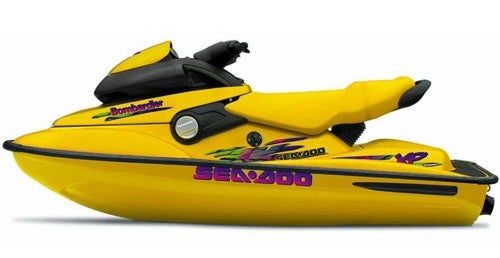
Remembering the Sea-Doo XP

Whatever Happened to the Wetbike?

2025 Yamaha JetBlaster Review

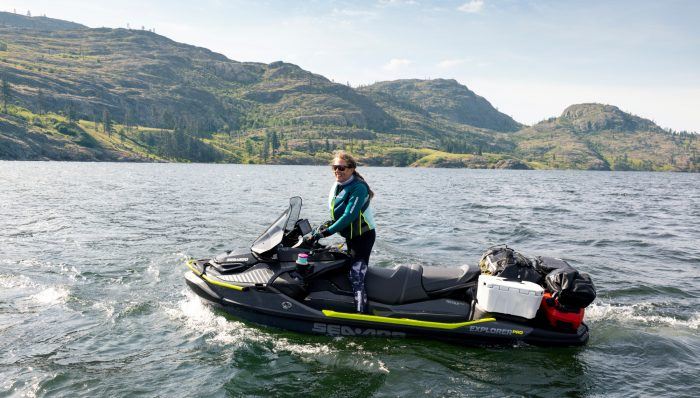
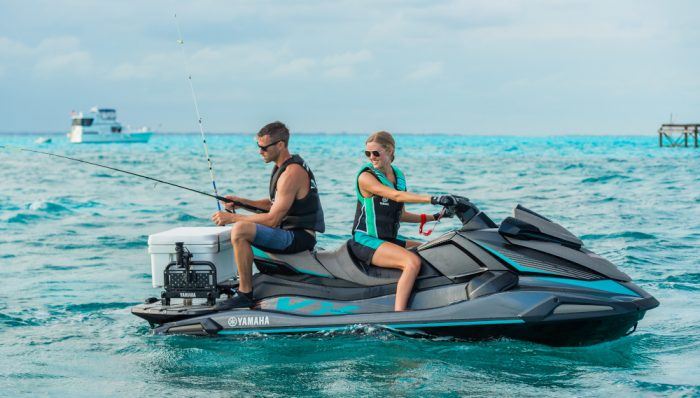
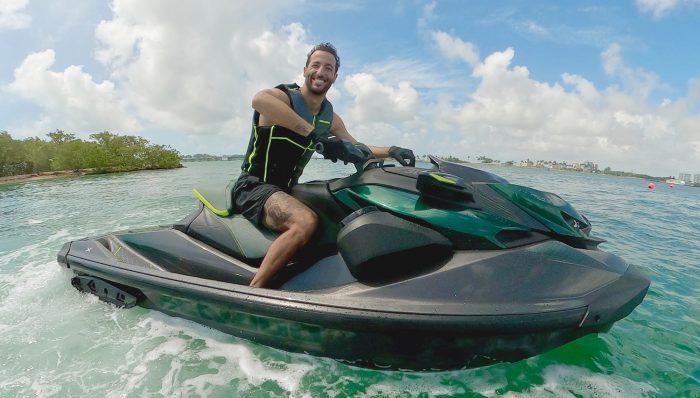



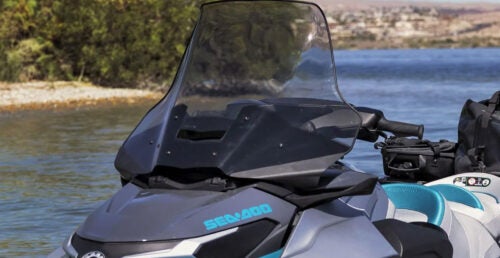



 Your Privacy Choices
Your Privacy Choices